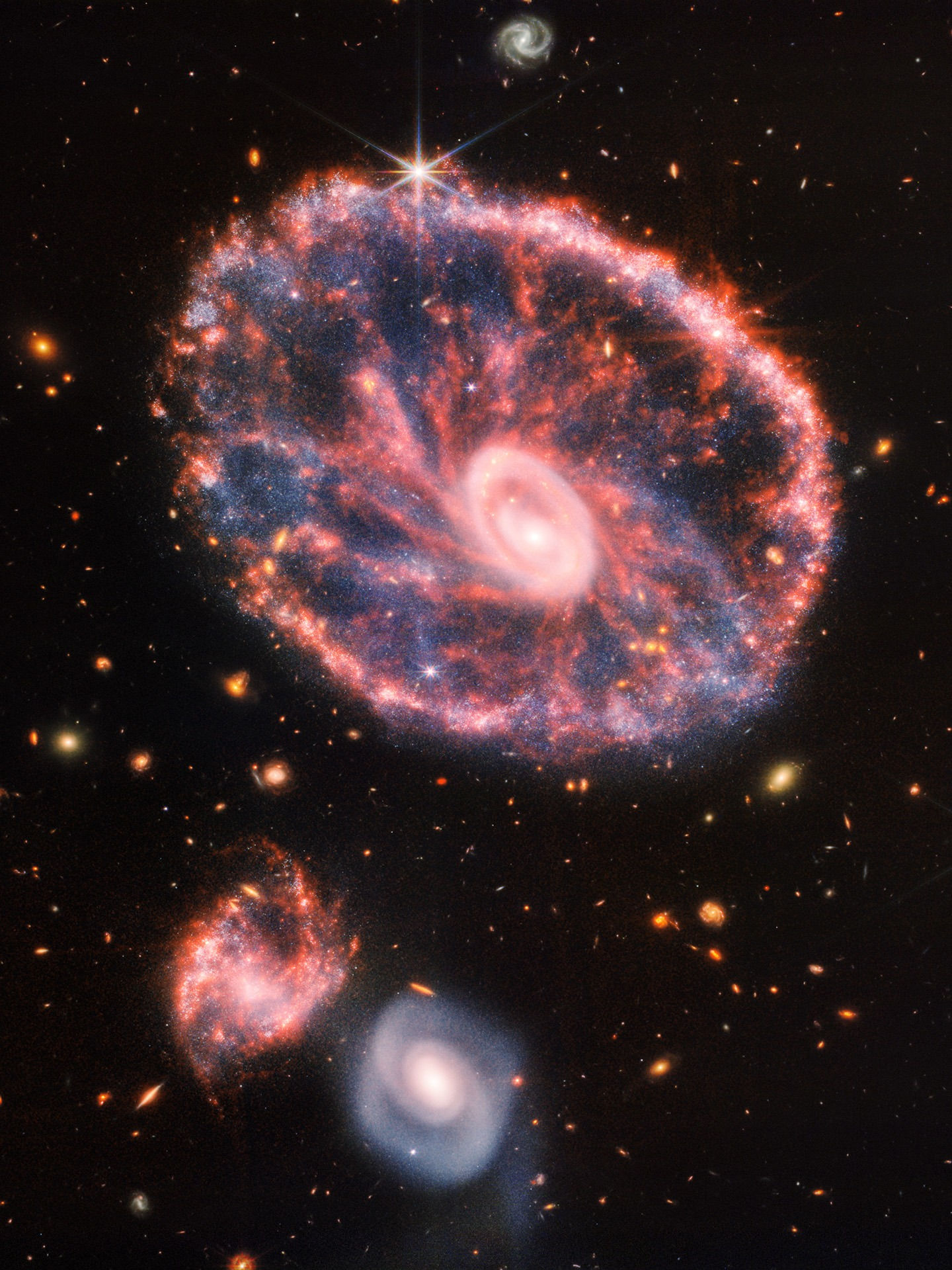For the first time in history, a practical and immediate vision as solution to climate change is here. Heres why..
- UnitedEarth
- Feb 25, 2024
- 6 min read
Updated: Feb 27, 2024
Introduction:
In the face of mounting evidence of climate change and its dire consequences for the planet, humanity finds itself at a critical juncture. Despite decades of scientific research and international agreements, practical solutions for addressing climate change have remained elusive. The urgency of the situation demands innovative thinking and bold action to safeguard the future of our planet and all its inhabitants. Please, check out our confirmed sources at the end of the article.

The Challenge of Climate Change: For years, experts and policymakers have grappled with the challenge of climate change, but progress has been slow and incremental. Despite warnings from the scientific community and calls for action from environmental advocates, global emissions of carbon dioxide (CO2) continue to rise unabated. In 2022 alone, key countries and regions such as the European Union, United States, China, India, and Russia collectively emitted nearly 20.3242 billion metric tons!, a staggering amount that threatens the stability of our climate. To put it in perspective, one metric ton of CO2 would fill a sphere about 10 meters in diameter (about the length of a school bus). So, billions of such spheres worth of CO2 are being added to our atmosphere annually by these countries and regions alone. Source : For USA U.S. passenger car GHG emissions 1990-2021 | Statista : For china China: CO₂ emissions 1960-2022 | Statista : For India Emissions in India - Statistics & Facts | Statista : For Russia The Carbon Brief Profile: Russia - Carbon Brief : For European Union https://www.statista.com/statistics/450017/co2-emissions-europe-eurasia/
The Need for Practical Solutions: While theoretical frameworks and ambitious targets have been proposed to mitigate climate change, the reality on the ground tells a different story. Practical, actionable solutions that can be implemented quickly and effectively are urgently needed to curb emissions and protect the planet. Until now, such solutions have been conspicuously absent from the global discourse on climate change.

Such vision would inevitably make global economy to skyrocket, since a huge part of the globalization in terms of spending money in things that cause Co2 levels to rise, will be unactive and rarely active only for serious reasons based on what government laws allow, like vacation in summer to go in beach or something serious. People would not spend basically money on cars and many things related to Co2 levels, fewer factories with more efficient automation, it would be able to compete and surpass even current global economy by far, in that society staff and devices will be much cheaper too.
A New Vision Emerges:
Amidst the uncertainty and inertia surrounding climate action, a visionary idea emerges—one that challenges conventional wisdom and offers a glimmer of hope for humanity's future. This idea centers around the intersection of three key components: Universal Basic Income (UBI), automation, and nuclear power.

Unlocking the Power of UBI:
At the heart of this visionary plan lies the concept of Universal Basic Income (UBI), a bold and transformative policy that promises to provide financial security and freedom to all individuals. If you don't know what universal basic income is and why is practical solution thanks to AI, look here : https://www.phystro.com/post/you-can-say-goodbye-to-the-9-to-5-circle-universal-basic-income-is-the-key-for-it By ensuring that every person has access to the resources they need to thrive, UBI has the potential to reshape our economy and society, paving the way for a more equitable and sustainable future. Coupled with UBI is the power of automation, a technological revolution that promises to reshape the way we work and live. By replacing human labor with machines and robots, automation can increase efficiency, productivity, and reduce the carbon footprint of industrial processes, especially from cars, with UBI saving 20.3242 billion metric tons of Co2, is a huge achievement and ensures long term survival until we gain super AI and make human race infallible from natural disasters. With fewer people commuting to work and engaging in energy-intensive activities, automation offers a pathway to reducing emissions and mitigating climate change.
Universal Basic Income (UBI) transcends mere survival measures; it embodies the principles of human rights, dignity, and freedom. By guaranteeing every individual a basic income regardless of employment status, UBI liberates people from the coercive pressures of mandatory labor jobs that often lead to stress, anxiety, and a diminished quality of life. Instead of being forced to work to survive, individuals are empowered to pursue their passions, interests, and personal growth.
Our research team or our scientists or rich scientists too, they are a testament to the transformative power of free time which it will cause similar effects that are enabled by UBI, basically getting free time for long period of time. None of us had ever worked a labor job until our mid-twenties, allowing us to dedicate ourselves fully to intellectual pursuits and scientific exploration. This unfettered access to knowledge and learning fueled our creativity and innovation, leading to the development of groundbreaking solutions that have the potential to elevate humanity to new heights.
UBI not only fosters a more intellectually vibrant and dynamic society but also has practical implications for addressing pressing global challenges such as climate change. By providing financial security and reducing economic inequality, UBI empowers individuals to make more informed choices about their lifestyles and consumption patterns. Moreover, by reducing the need for labor-intensive industries, UBI contributes to a reduction in carbon emissions and mitigates the impacts of climate change. Furthermore, UBI enables individuals to lead more fulfilling and meaningful lives by freeing them from the constraints of menial and unfulfilling work. With the burden of financial insecurity lifted, people have the time and mental space to contemplate the deeper questions of existence, pursue their passions, and contribute to the betterment of society in ways that align with their values and aspirations. It is not just a pragmatic solution to economic insecurity but a bold affirmation of our shared humanity and the limitless potential of the human spirit.

The Role of Nuclear Power:
Central to this vision is the strategic deployment of nuclear power reactors to support the energy needs of a highly automated society. Despite concerns about safety and proliferation, nuclear power offers a clean and reliable source of energy that can help reduce reliance on fossil fuels and curb CO2 emissions. By placing nuclear reactors in secure locations and implementing stringent safety measures, the risks associated with nuclear energy can be minimized, paving the way for a more sustainable energy future.

It's important to note that one nuclear power plant can provide electricity to approximately 100,000 homes for a year. This underscores the efficiency and effectiveness of nuclear energy in meeting the energy needs of large populations. Companies often build many factories because there are so many people who needs to work in order to survive, so sametime they help us and they get more money, but with AI and automation, factories could still be much less than 100.000 houses and still produce much more than the mere numbers of humans that worked on much more oppened factories. Safety protocols, regulatory oversight, and advanced technology ensure the safe operation of nuclear reactors. Additionally, placing reactors in secure locations, such as undisclosed facilities managed by intelligence agencies, further enhances safety and security.

Together, UBI, automation, and nuclear power form a comprehensive strategy for addressing climate change and securing humanity's future. By providing financial security, promoting innovation, and transitioning to clean energy sources, this visionary plan offers a pathway to reducing emissions, mitigating climate change, and safeguarding the planet for future generations.
Conclusion:
As humanity stands at the crossroads of history, the time for action is now!, because according to scientific sources, a devastating economic chaos and enforced large wars are coming in our way from now in 20 years, billions of lifes will be gone and maybe even entire human race due to nuclear war. By embracing bold and innovative solutions like UBI, automation, and nuclear power, we can chart a course towards a more sustainable and prosperous future.
The challenges ahead are daunting, but with vision, determination, and collective action, we can overcome them and build a world where every person has the opportunity to thrive, and the planet is preserved for generations to come. So in that case, push the idea of extreme automation and revolt that Artificial Intelligence and Robotics and automation are not fast enough!, we barely had the first fully automated fastfood in california in 2024. If we don't force our governments and scientists to accelerate those 3 or at least 2 vital factors like AI and automation at extreme levels, then climate change will force us to make wars in europe, especially in united states we will see deaths that reminds us world war 2, possibly it could trigger nuclear war because many would be desperate for resources and attack each other, 3rd world countries will be the first likely who will start the war since the climate change will cause chaos there first. First world countries will use their air conditioning to survive the extreme heat in summer or sometime. Please, check our sources down below.































































































Comments